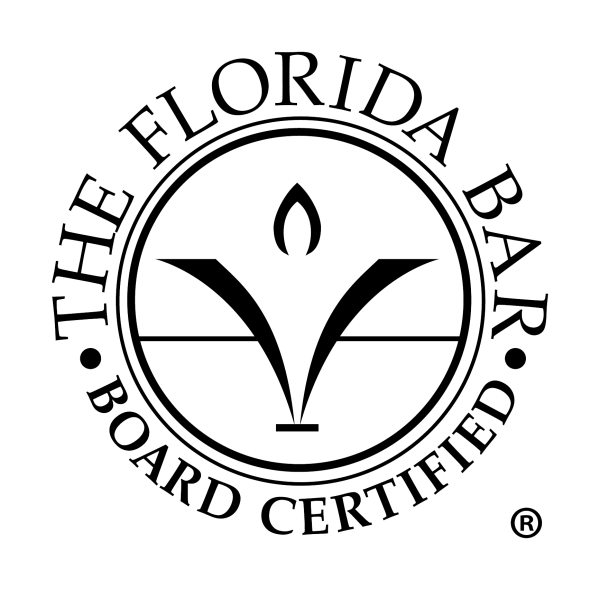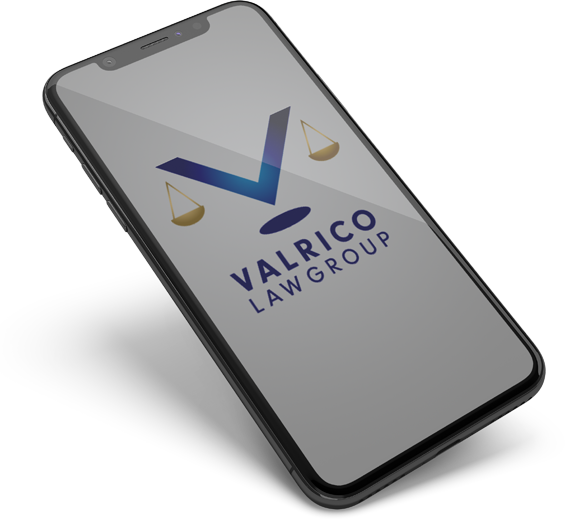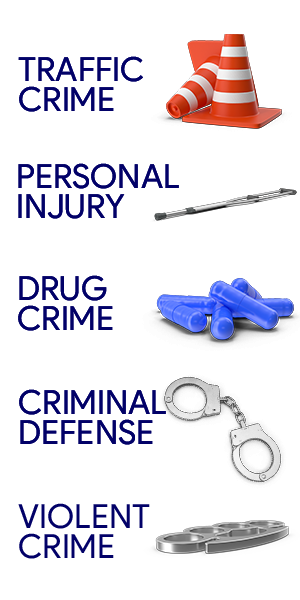With the eruption of COVID-19, many jurisdictions have implemented “shelter-in-place” orders. In other words, the government is telling its citizens that they cannot leave the home except for emergencies and essentials. Typically, food and medical emergencies would be essentials.
In a country, such as the United States, that was literally built upon the idea of freedom and independence, the concept of our government forcing its citizens to remain inside their homes is almost repugnant. However, in times of exceptional need, it may or may not be necessary. That is a debate for our elected leaders. The legal question, whether a person can actually get in trouble for violating that order, is a different matter.
Can I Get Arrested If I Violate a Quarantine Order?
The short answer is “yes.” Fla. Stat. 381.00315 makes the State Health Officer responsible for declaring public health emergencies and ordering isolation or quarantines. Our State Health Officer is the State’s Surgeon General, who is appointed by the Governor.
A “public health emergency” can last for 60 days, unless the Governor concurs in its extension. Once the emergency has been declared, the State Health Officer has the power to order an individual to be examined, tested, vaccinated, treated, isolated, or quarantined for communicable diseases that have significant morbidity or mortality and present a severe danger to public health. Individuals who are unable or unwilling to be examined, tested, vaccinated, or treated for reasons of health, religion, or conscience may be subjected to isolation or quarantine. Law enforcement can use any means necessary to enforce such an order.
The violation of such an order is punishable as a second-degree misdemeanor and by up to 60 days in jail or 6 months of probation.
Can I Fight It?
Predictably enough, there isn’t any case law that gives any guidance on the enforcement of this statute. The writer has found no instances of it actually being used. So, we are in uncharted territory here.
With that said, the law itself states that the individual so isolated or quarantined must have “significant morbidity or mortality and present a severe danger to public health.” This would appear to be an element of the crime that would need to be proven by the government beyond and to the exclusion of every reasonable doubt. As such, it might be difficult to gain a conviction without proof that the specific individual possesses the deadly and contagious virus.
What Should I Do?
While it might be extremely difficult, if not impossible, for the government to gain a conviction for a violation of such a quarantine order, the most prudent path would be to simply follow the direction of the State Health Officer in isolating or quarantining as directed. This not only would allow you to avoid an arrest and legal fees, but would most likely benefit our friends and neighbors by allowing us to get through any such order sooner rather than later.
With that said, if you are arrested for such a violation, do not hesitate to call board certified criminal trial lawyer Adam L. Bantner, II for your free consultation. We are here for our community and to help you should you find yourself on the wrong side of the law.
Fla. Stat. 381.00315
381.00315 Public health advisories; public health emergencies; isolation and quarantines.—The State Health Officer is responsible for declaring public health emergencies, issuing public health advisories, and ordering isolation or quarantines.
(1) As used in this section, the term:(a) “Isolation” means the separation of an individual who is reasonably believed to be infected with a communicable disease from individuals who are not infected, to prevent the possible spread of the disease.
(b) “Public health advisory” means any warning or report giving information to the public about a potential public health threat. Before issuing any public health advisory, the State Health Officer must consult with any state or local agency regarding areas of responsibility which may be affected by such advisory. Upon determining that issuing a public health advisory is necessary to protect the public health and safety, and prior to issuing the advisory, the State Health Officer must notify each county health department within the area which is affected by the advisory of the State Health Officer’s intent to issue the advisory. The State Health Officer is authorized to take any action appropriate to enforce any public health advisory.
(c) “Public health emergency” means any occurrence, or threat thereof, whether natural or manmade, which results or may result in substantial injury or harm to the public health from infectious disease, chemical agents, nuclear agents, biological toxins, or situations involving mass casualties or natural disasters. Before declaring a public health emergency, the State Health Officer shall, to the extent possible, consult with the Governor and shall notify the Chief of Domestic Security. The declaration of a public health emergency shall continue until the State Health Officer finds that the threat or danger has been dealt with to the extent that the emergency conditions no longer exist and he or she terminates the declaration. However, a declaration of a public health emergency may not continue for longer than 60 days unless the Governor concurs in the renewal of the declaration. The State Health Officer, upon declaration of a public health emergency, may take actions that are necessary to protect the public health. Such actions include, but are not limited to:
1. Directing manufacturers of prescription drugs or over-the-counter drugs who are permitted under chapter 499 and wholesalers of prescription drugs located in this state who are permitted under chapter 499 to give priority to the shipping of specified drugs to pharmacies and health care providers within geographic areas that have been identified by the State Health Officer. The State Health Officer must identify the drugs to be shipped. Manufacturers and wholesalers located in the state must respond to the State Health Officer’s priority shipping directive before shipping the specified drugs.
2. Notwithstanding chapters 465 and 499 and rules adopted thereunder, directing pharmacists employed by the department to compound bulk prescription drugs and provide these bulk prescription drugs to physicians and nurses of county health departments or any qualified person authorized by the State Health Officer for administration to persons as part of a prophylactic or treatment regimen.
3. Notwithstanding s. 456.036, temporarily reactivating the inactive license of the following health care practitioners, when such practitioners are needed to respond to the public health emergency: physicians licensed under chapter 458 or chapter 459; physician assistants licensed under chapter 458 or chapter 459; licensed practical nurses, registered nurses, and advanced practice registered nurses licensed under part I of chapter 464; respiratory therapists licensed under part V of chapter 468; and emergency medical technicians and paramedics certified under part III of chapter 401. Only those health care practitioners specified in this paragraph who possess an unencumbered inactive license and who request that such license be reactivated are eligible for reactivation. An inactive license that is reactivated under this paragraph shall return to inactive status when the public health emergency ends or before the end of the public health emergency if the State Health Officer determines that the health care practitioner is no longer needed to provide services during the public health emergency. Such licenses may only be reactivated for a period not to exceed 90 days without meeting the requirements of s. 456.036 or chapter 401, as applicable.
4. Ordering an individual to be examined, tested, vaccinated, treated, isolated, or quarantined for communicable diseases that have significant morbidity or mortality and present a severe danger to public health. Individuals who are unable or unwilling to be examined, tested, vaccinated, or treated for reasons of health, religion, or conscience may be subjected to isolation or quarantine.
a. Examination, testing, vaccination, or treatment may be performed by any qualified person authorized by the State Health Officer.
b. If the individual poses a danger to the public health, the State Health Officer may subject the individual to isolation or quarantine. If there is no practical method to isolate or quarantine the individual, the State Health Officer may use any means necessary to vaccinate or treat the individual.
Any order of the State Health Officer given to effectuate this paragraph shall be immediately enforceable by a law enforcement officer under s. 381.0012.
(d) “Quarantine” means the separation of an individual reasonably believed to have been exposed to a communicable disease, but who is not yet ill, from individuals who have not been so exposed, to prevent the possible spread of the disease.
(2) Individuals who assist the State Health Officer at his or her request on a volunteer basis during a public health emergency are entitled to the benefits specified in s. 110.504(2), (3), (4), and (5).
(3) To facilitate effective emergency management, when the United States Department of Health and Human Services contracts for the manufacture and delivery of licensable products in response to a public health emergency and the terms of those contracts are made available to the states, the department shall accept funds provided by counties, municipalities, and other entities designated in the state emergency management plan required under s. 252.35(2)(a) for the purpose of participation in those contracts. The department shall deposit those funds in the Grants and Donations Trust Fund and expend those funds on behalf of the donor county, municipality, or other entity for the purchase of the licensable products made available under the contract.
(4) The department has the duty and the authority to declare, enforce, modify, and abolish the isolation and quarantine of persons, animals, and premises as the circumstances indicate for controlling communicable diseases or providing protection from unsafe conditions that pose a threat to public health, except as provided in ss. 384.28 and 392.545-392.60. Any order of the department issued pursuant to this subsection shall be immediately enforceable by a law enforcement officer under s. 381.0012.
(5) The department shall adopt rules to specify the conditions and procedures for imposing and releasing an isolation or a quarantine. The rules must include provisions related to:(a) The closure of premises.
(b) The movement of persons or animals exposed to or infected with a communicable disease.
(c) The tests or treatment, including vaccination, for communicable disease required before employment or admission to the premises or to comply with an isolation or a quarantine.
(d) Testing or destruction of animals with or suspected of having a disease transmissible to humans.
(e) Access by the department to isolated or quarantined premises.
(f) The disinfection of isolated or quarantined animals, persons, or premises.
(g) Methods of isolation or quarantine.
(6) The rules adopted under this section and actions taken by the department pursuant to a declared public health emergency, isolation, or quarantine shall supersede all rules enacted by other state departments, boards or commissions, and ordinances and regulations enacted by political subdivisions of the state. Any person who violates any rule adopted under this section, any isolation or quarantine, or any requirement adopted by the department pursuant to a declared public health emergency, commits a misdemeanor of the second degree, punishable as provided in s. 775.082 or s. 775.083.

Adam Bantner – Criminal Defense Attorney at Law
If you are in need of an expert criminal defense attorney specializing in legal defense against DUI, traffic, criminal, violent crime charges, or a personal injury – you’ll find it here.
Adam L. Bantner, II is a Board Certified Criminal Trial Attorney representing those accused of crimes in Hillsborough and Polk counties. He is the Past President of the Hillsborough County Association of Criminal Defense Attorneys., is a Super Lawyers Rising Star, and AVVO rated “Superb.” Adam is a member of Valrico Law Group.
Request a Consultation


Adam Bantner, II is a Board Certified Criminal Trial Law Attorney representing those accused of crimes in Hillsborough and Polk Counties. When you are facing criminal charges, you want an expert in your corner. The Florida Bar has recognized Adam as an expert criminal defense attorney.
I have been defending the accused since 2006 and am Past President of the Hillsborough County Association of Criminal Defense Attorneys.
I have tried over 30 jury trials, on charges ranging from driving on a suspended license to murder.
In addition, I am a Brandon personal injury attorney. If you’ve been injured through no fault of your own, give me a call to see how we can help!
I approach each case on the principle that every client deserves zealous representation, with attention to detail and to their individualized needs. My mission is to get the best possible result for every client, in every case, every time. Give me a call to see how I can assist you to get the best results in your case. I are here to help.

